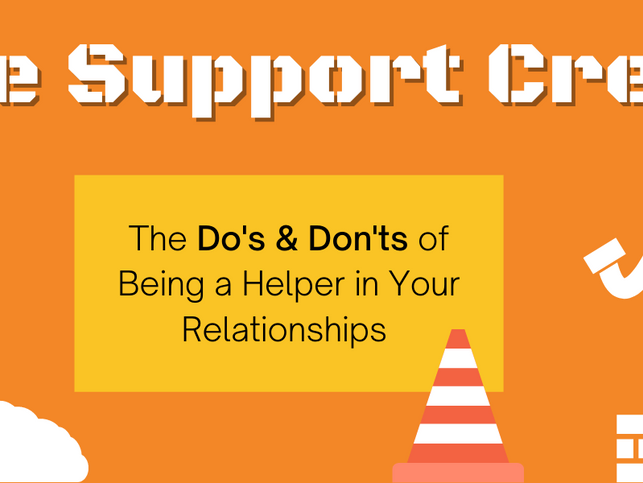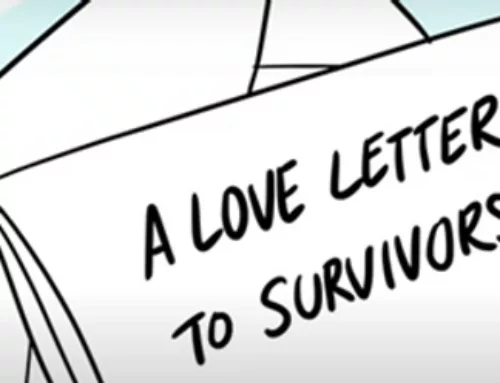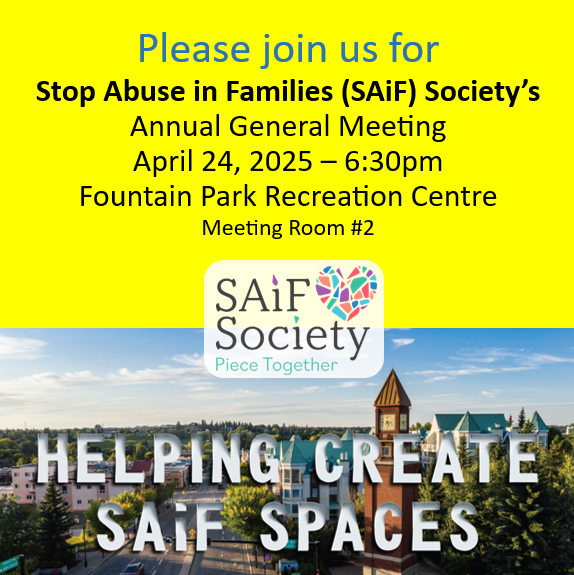Welcome to the FINAL WEEK of Staying Safe & Keeping Positive While @ Home! This week we’re going to talk about the Do’s & Don’ts of being a Helper! Contrary to popular belief, being a helper doesn’t always… well, help! Read on to find out when being a helper can be counterproductive.
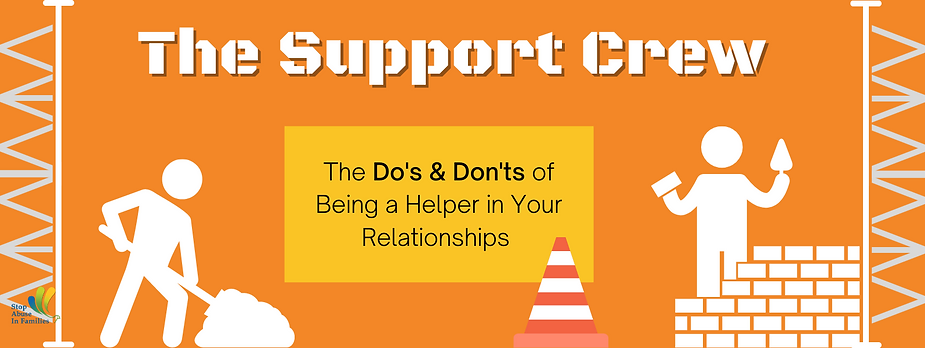
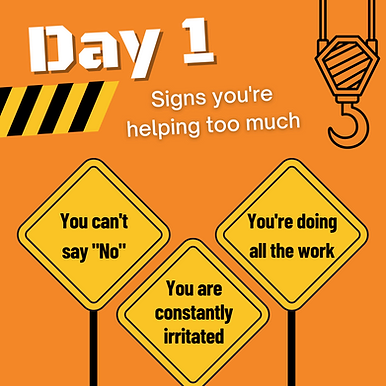
Too much helping? It’s a thing! Too much of a good thing almost always leads to bad news. Here are some signs that you can look for if you think you or someone you know may be helping too much.
You can never say “No” – if you know you already struggle with this, pay extra attention to when something makes you feel uncomfortable or you’d rather not. Real friends will not snap back at you for saying ‘no’ to something that makes you uncomfortable. Huge red flag!
You are constantly mad/irritated – if taking care of the person leaves you feeling resentful, chances are you need some space. It’s not selfish to realize this and take some time for yourself. It can only help your relationship in the future.
You’re doing all the work – if you’re the only one looking to improve the other person’s life, you’re working too hard. Good relationships are built on a healthy balance of give and take.
Always be on the lookout for these signs. When helping becomes a chore because of one or all of these signs, it could leave you and your relationships worse off than before.
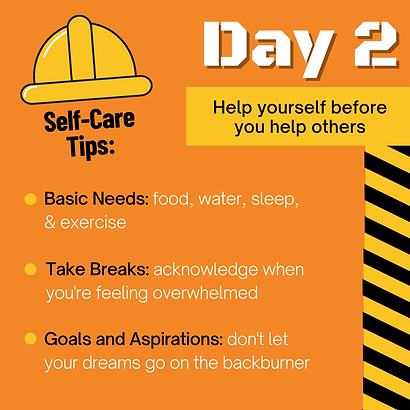
Speaking of how helping others may make YOU feel, you’ve probably heard the saying “Put your own oxygen mask on first” and it applies to a lot more than just aircraft safety. Taking care of yourself before trying to help others is essential! Here are some self-care tips to master before helping those around you.
Basic Needs: Fuel your body with good food, water, sleep, and exercise. These are what you need to keep moving.
Take Breaks: Scheduled breaks are one thing but also acknowledge when you’re feeling overwhelmed. If you feel less happy and more tired/critical, it’s time to take a break and reset your mind.
Goals and Aspirations: If you’re spending so much time caring for someone that you don’t have the time or energy to care for yourself, it’s time to step back. Survival mode puts your dreams on the back burner but they’re definitely important too!
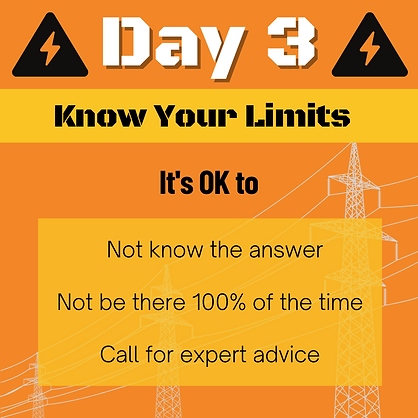
It’s also important to always recognize what problems are in or out of your control. Helping others is a rewarding but challenging task. If you’re exerting so much energy helping others that you feel like you’re hitting your breaking point, it’s time to call in reinforcements. Knowing your limits to helping others can look like
Knowing when what you’re doing isn’t helping anymore. There are limits to what we, as friends, can do. Don’t lose sleep trying to find “the answer” to all their problems because chances are there is no magic fix. Maybe it’s time to call for additional support.
Knowing when they are asking something unreasonable of you. For example, it’s unrealistic if they ask you to answer your phone at all times of the day and drop whatever you’re in the middle of to help them. You can’t do it all nor should you be expected to. Could be time to help your person build a support system where you’re not the only one they call on.
Knowing when to call for an expert i.e. medical advice. WebMD/Google ain’t always gonna cut it.
Sometimes even the best fall short, there is no shame in limits! Limits are there for us to realize when things aren’t working so we can move in another direction.
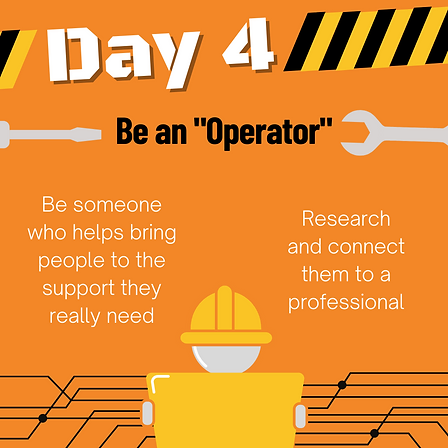
Sometimes the hardest thing to do when you’re having a tough time is to ask for help. If someone has the courage to reach out to you and they’re comfortable with it, the pressure doesn’t have to be entirely on you. When helping others, we often want to be the counsellor, the nurse, the paramedic, etc… But a lot of the time, the best way we can help is to be the “operator”.
As much as we like to think that the internet can give us all the information we’d ever need, many of us still don’t have the proper training to help someone with mental illness. Don’t feel put down though, the operator is also a very important position. An operator can still do the research and use their skills to connect their people to the help they really need.
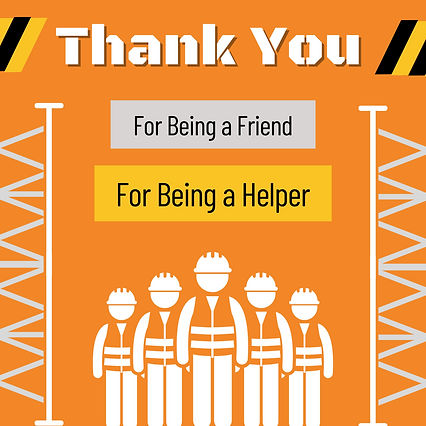
Knowing that someone is there for you who cares can be enough in tough times. Thank you for being a friend and for wanting to be a better helper for your loved ones. Our hearts go out to you!
This brings us to the end of our Summer SAIF Ed Series. We hope you all got to take something away from these 4 weeks and we are so thankful for your support. If you missed any of the previous weeks, go ahead and check out the rest of our summary blogs. Follow us on social media and comment on any of the SAIF Ed posts to tell us your thoughts on the 4 week series and what you would like us to cover in the future.
